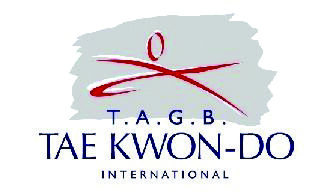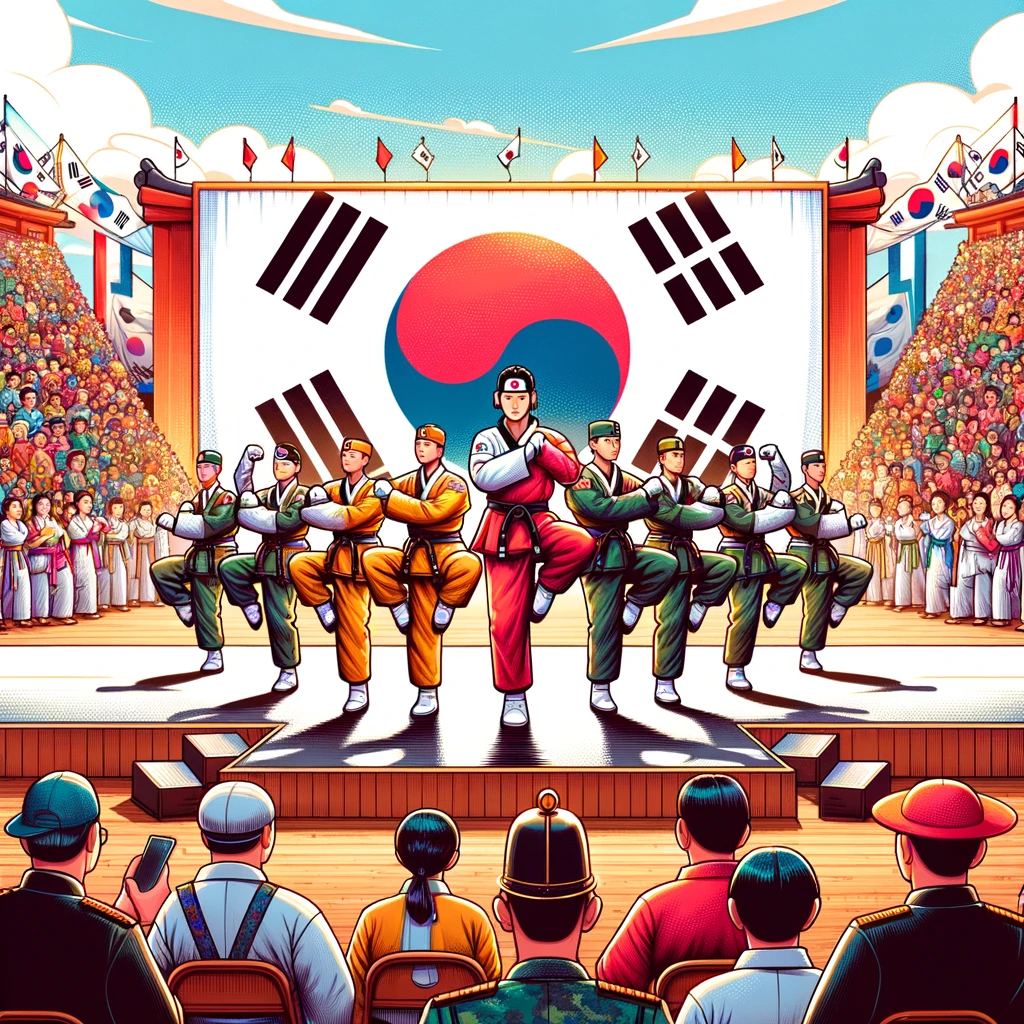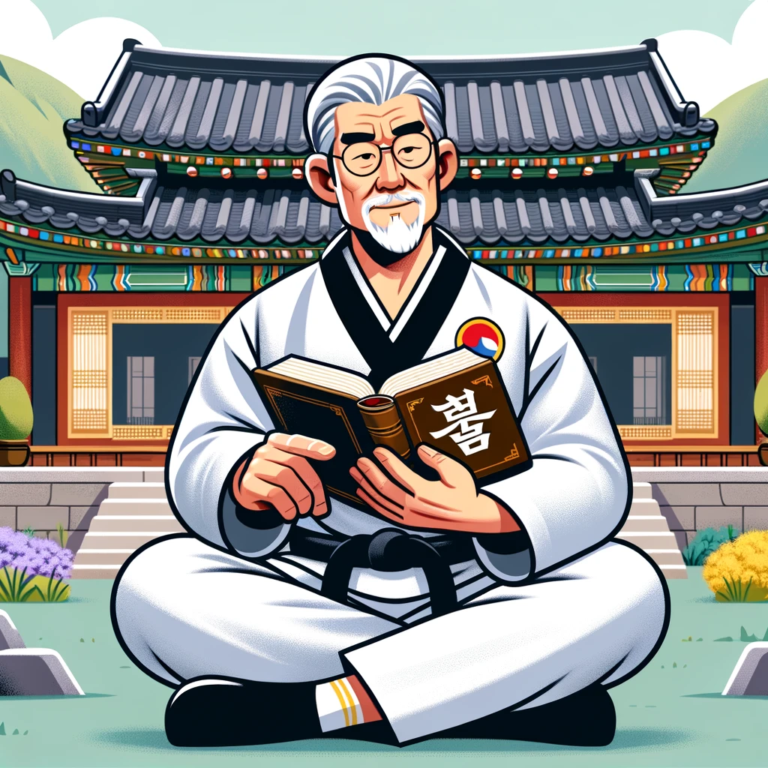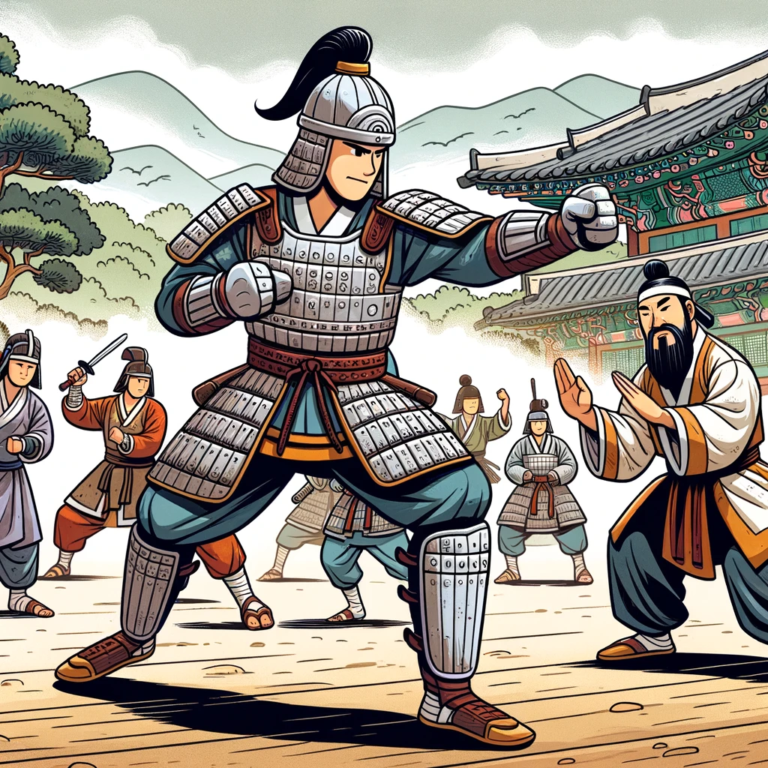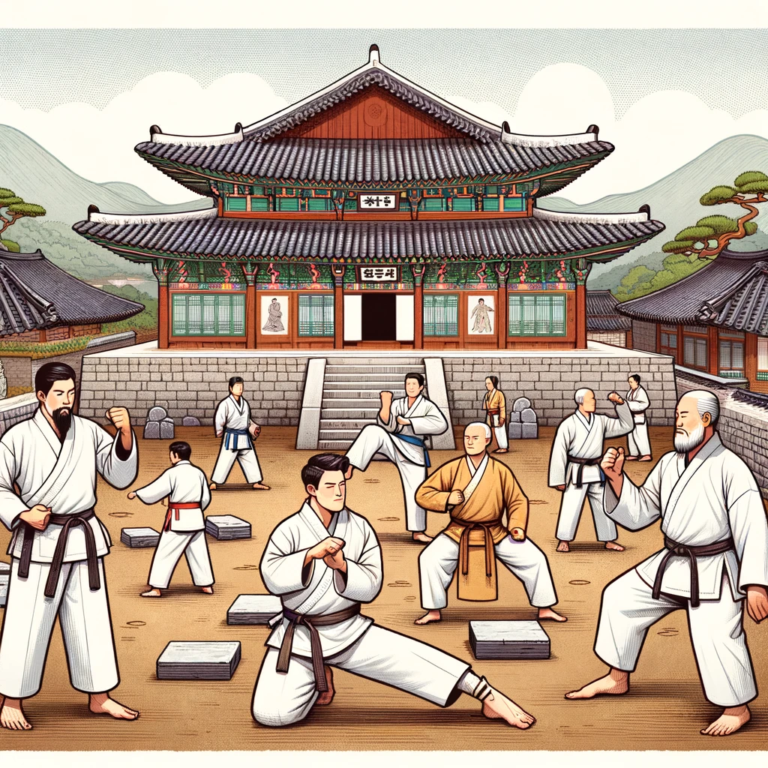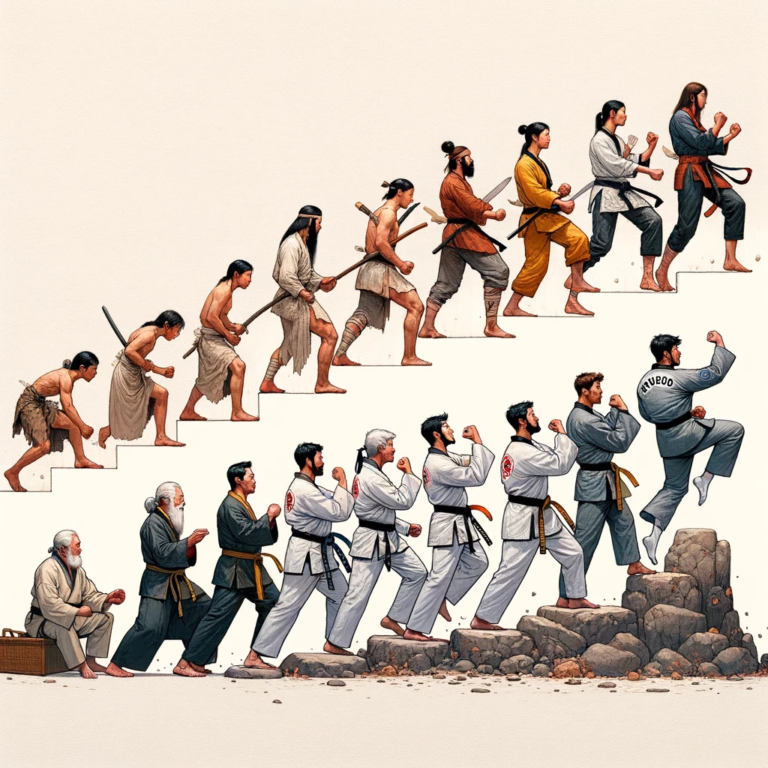| Key Takeaways | Details |
| Historical Roots | Tae Kwon Do’s integration into the Korean military dates back to the mid-20th century, underscoring its significance in national defense and soldier discipline. |
| Training Regimen | Tae Kwon Do’s integration into the Korean military dates back to the mid-20th century, underscoring its significance in national defence and soldier discipline. |
| Global Influence | Tae Kwon Do’s military roots have bolstered its reputation, leading to widespread adoption and respect in martial arts communities worldwide. |
Tae Kwon Do, a martial art that embodies the spirit and strength of Korea, has a profound and historical relationship with the Korean military. This martial art is not only a symbol of self-defence and physical prowess but also a testament to the strategic and disciplined approach of the Korean armed forces.
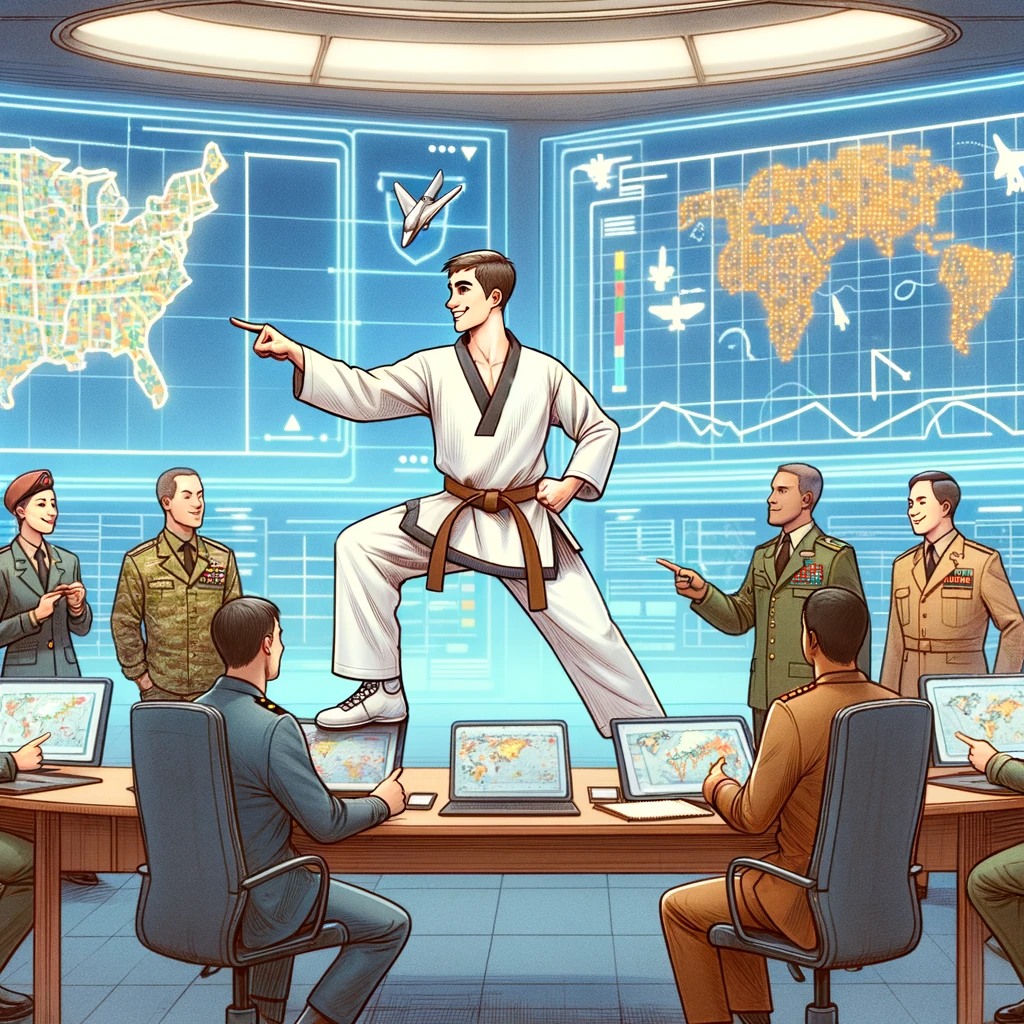
The Birth of a Martial Discipline in the Military
The journey of Tae Kwon Do within the ranks of the Korean military began in the mid-20th century. During this period, martial arts were formalised and incorporated into the soldiers’ training regimens. The military’s adoption of Tae Kwon Do wasn’t merely for physical training; it was a strategic move to instil discipline, improve morale, and enhance the combat effectiveness of the troops.
A Training Regimen Beyond Combat
Tae Kwon Do’s role in the military extends beyond mere combat training. It encompasses a comprehensive physical conditioning program that promotes strength, agility, endurance, and mental fortitude. The rigorous training sessions involve learning kicks and punches and embodying the Tae Kwon Do philosophy, which emphasises courtesy, integrity, perseverance, self-control, and an indomitable spirit—paramount for every soldier.
Tae Kwon Do’s Global Footprint and Military Roots
The military roots of Tae Kwon Do have significantly contributed to its global appeal and respect in the world of martial arts. The discipline, rigour, and skill associated with martial arts can be traced back to its adoption by the Korean military. This historical aspect adds a layer of depth and seriousness to the practice of Tae Kwon Do, making it not just a sport or a form of self-defence but a lifestyle that commands respect and dedication.
The international spread of Tae Kwon Do has been phenomenal, with practitioners and schools across the globe embracing the art form. The martial art’s influence has transcended borders, making it a global phenomenon. The international impact of Tae Kwon Do is a testament to its effectiveness, adaptability, and the universal appeal of its underlying principles.
Mastery and Discipline: The Essence of Military Training
In the heart of the Korean military, Tae Kwon Do is more than a set of movements; it’s a path to mastering self-discipline and achieving physical excellence. The training is rigorous, designed to refine the soldiers’ combat skills and forge their character. The precision and discipline required in Tae Kwon Do resonate with the military’s values, making it an integral part of the soldiers’ daily regimen.
The Role of Tae Kwon Do in Combat Readiness
The physical and mental demands of Tae Kwon Do prepare soldiers for the challenges of the battlefield. The high-intensity training hones their reflexes, enhances their situational awareness, and cultivates a mindset ready for swift and decisive action. This martial art doesn’t just teach soldiers how to strike; it equips them with the resilience and tactical insight necessary for modern warfare.
Beyond the Barracks: Tae Kwon Do’s Influence on Military Strategy
The influence of Tae Kwon Do extends beyond physical training; it’s woven into the strategic fabric of the Korean military. The martial arts principles of balance, power, and control mirror the strategic doctrines of military planning and operations. By adopting the philosophies of Tae Kwon Do, soldiers and strategists gain a deeper understanding of conflict dynamics, enabling them to approach challenges with clarity and adaptability.
Preserving Heritage and Promoting Unity
Tae Kwon Do symbolises Korea’s martial heritage, a legacy meticulously preserved and proudly promoted by the military. It’s not just a tool for combat; it’s a cultural ambassador, showcasing Korea’s rich history and vibrant spirit to the world. Through pioneering Tae Kwon Do programs, the military has played a pivotal role in preserving this heritage, ensuring that the art form remains a source of national pride and unity.
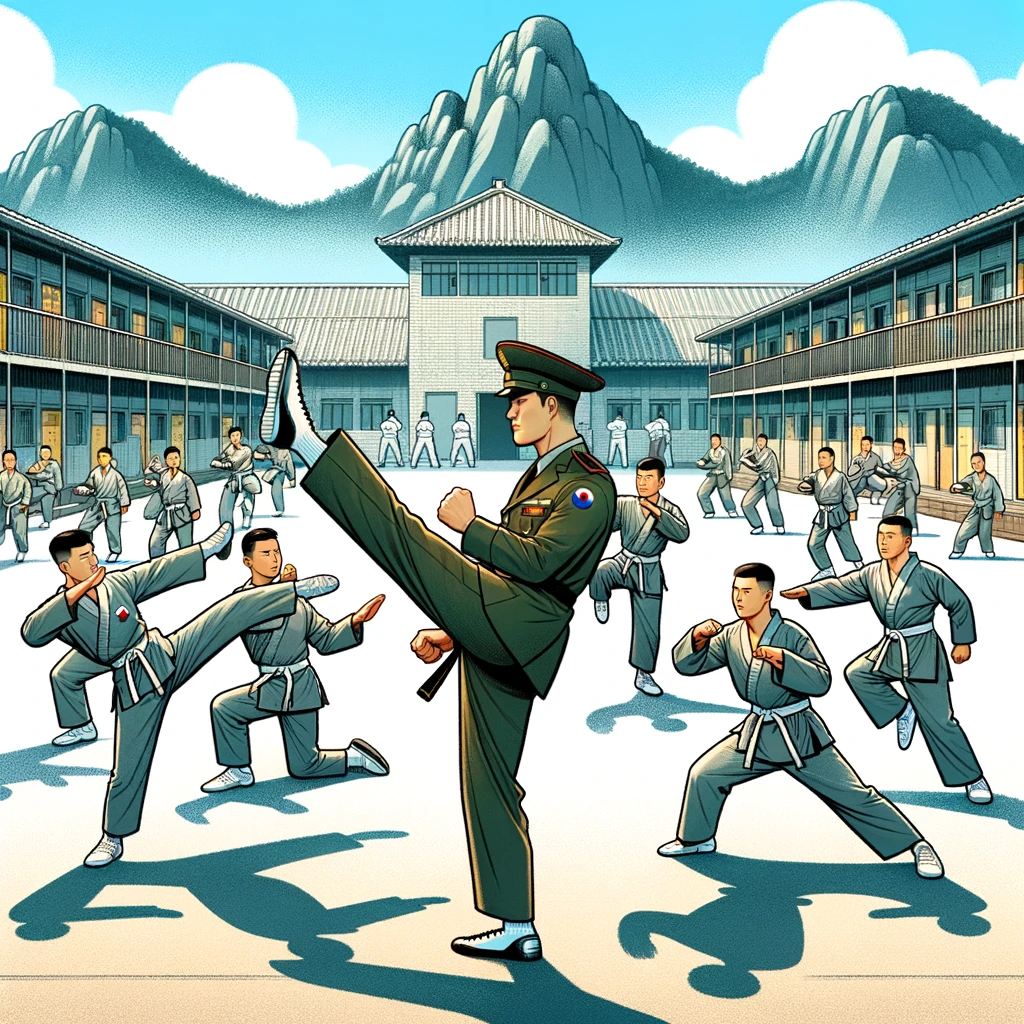
The Future of Tae Kwon Do and Military Synergy
As we look to the future, the synergy between Tae Kwon Do and the Korean military continues to evolve. With advancements in training methodologies and a deepening understanding of martial arts’ role in personal and national defence, Tae Kwon Do is set to remain a cornerstone of military training. Its influence is expected to grow, further solidifying the bond between martial prowess and army excellence.
In conclusion, the relationship between Tae Kwon Do and the Korean military is a testament to the timeless relevance of martial arts in shaping individuals and nations. Through rigorous training, strategic integration, and cultural promotion, Tae Kwon Do plays a crucial role in the Korean military, echoing the nation’s strength, discipline, and unity on the global stage.
